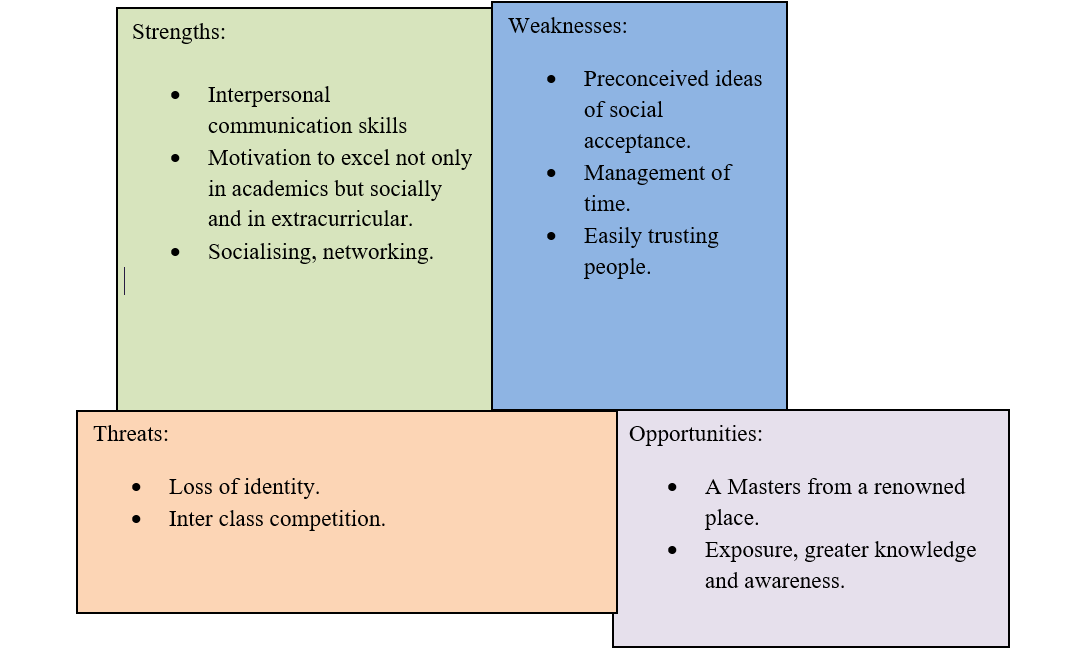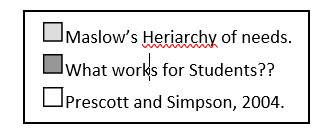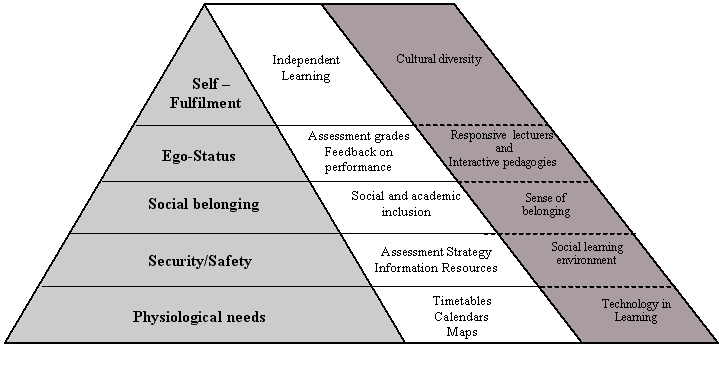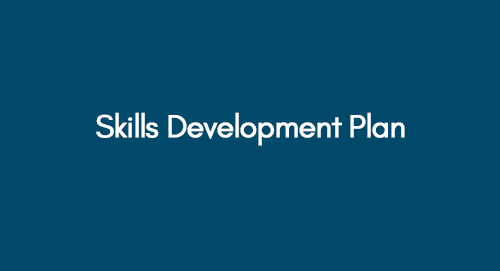
Health and Safety Management for Employees: MORT Analysis of the Buncefield Fire Explosion
December 18, 2020
Building Conservation and Adaptation
December 18, 2020A skill development plan is a well-organized strategy for enhancing and excelling in particular abilities. It outlines a path to enhance one's skills, whether for personal growth or professional advancement, with clear goals and actions. In this section, you'll find introduction of the study.
Introduction
The purpose of conducting a skills profile and a development plan inherently is to make the individual realize goals, perceptions, and aspirations, followed by an action plan to achieve these goals. In order to identify particular skills and their development action plan.
Learn How to Develop Entrepreneurial Skills
This report has been divided into four sections: the process of acculturation, including a SWOT analysis, followed by an application of Belbin rules for teamwork and presentation, an outlining of professional skills that have been developed followed by a table illustrating the action development plan.
Acculturation within a Skills Development Plan involves integrating diverse knowledge and practices to foster a more inclusive and adaptive learning environment.
Acculturation
Berry and Sam (2010) state that the process of acculturation involves changes in the culture and psychology when two individual cultures meet. Coming into a multi-cultural country, I underwent a profound experience of acculturation. Despite the preconceived social stigmas attached to various ethnicities and their cultural norms, I let go of my inhibitions and began accepting people despite the social and cultural standards. Similarly, my diverse group of friends today helped me settle in and welcomed me into their society while dispelling the preconceived notions about my culture and ethnicity. Looking beyond the premise of social acceptance, I have learned to be patient and grateful when needed.
Identify a Person's Strengths and Weaknesses to Gain Social Acceptance
I conducted a SWOT analysis to identify my strengths and weaknesses in response to a new culture and society.

Application of Belbin Rules
Dr. Meredith Belbin, in her research (Lowe and Cook, 2003), highlights nine roles that are prevalent in any team or a group:
- Chairman (extrovert, leader)
- Shaper (extrovert dominant)
- Plant (High IQ, Introvert)
- Monitor Evaluator (High IQ)
- Company worker (Controlled)
- Resource investigator (Stable, dominant)
- Team worker (less dominant, extrovert)
- Finisher (introvert)
- Specialist (introvert, subjective)
Applying the Belbin rules to my personal experiences, I tend to fall in the role of a Chairman usually, not only leading the group but also directing the discussion. However, I have also, on various occasions, worked as a part of a team, with input in the form of ideas and tangible work. On the downside, where my communication skills have developed, my presentation skills which present the dichotomy of me being confident in putting forth my ideas and being nervous when put in a less authoritative position, thereby proving that every individual assumes a different role in different varying conditions.
Professional Skills
My Master's degree has not helped in evolve but also polished my personal skills and has further enhanced and developed various professional skills pertinent to my career development. The following figure taken from Prescott and Simpson, 2004 highlights the Maslow’s hierarchy of needs coupled with the needs of the students.


The above figure separates and distinguishes students' various needs and ways of achieving them. With calendars or timetables that fulfil the physiological requirements of the students, technology is the best option. Given a proper social learning environment for students will provide them with safety and security, which comes after the fulfilment of physiological needs. Given the culturally diverse society, the self-fulfilment of the student is easily achieved with the help of individual learning.
My Master's degree and the learning process have equipped me with various attributes inherent to success in the professional career path. Applying the Belbin rules stated above, I find myself most comfortable moulding to the role of a chairman, where I can guide the team to follow through with procedures and limitations for achieving any project's objectives. However, being a part of a team has also grown in me, and a particular example of working on a project under the supervision of another classmate made me realise the importance of staying in the backseat and trying to motivate the team members to work for given objectives.
During the course of my study, I have learned to manage time, be punctual and be able to address critical issues and agendas within the prescribed time frame, which is a prerequisite to any interview meetings or career meetings that I may undertake. Furthermore, my negotiation skills have also changed whereby in one particular instance of working as a part of a group, I put forth a different methodology for collection of data which initially was seen as a hindrance to the procedure by many; however, I pointed out the various positive angles of the chosen methodology, and in the end, we all agreed on the implementation of my suggestion. This skill is inherent to my career development as it will help me to not only negotiate but effectively communicate and follow through with a suggestion that may seem inappropriate in the first instance. These meetings have also enhanced various techniques that will be used in my professional career growth, such as making sure that these meetings run smoothly and within the allotted time frame while using the majority rule priority so that none of the team members is given undue preference.
Furthermore, in meetings, there will inevitably be a deviation from the topic, and a reasonable leader or a team member will ensure that if there is such a deviation within the allotted time frame, so they can wind the discussion back to the topic at hand (Cohen, 2001). Another important skill that I have acquired is keeping updated personal notes or minutes of a meeting. These should be kept by all individuals working within a team not only to prevent any confusion but also to highlight any points that may have been missed in a meeting to be discussed next time.
As a part of the learning process, I also took up career counselling. I found that potential employers are not only looking for motivated employees but also self-sufficient, independent and easy to get along with a team of individuals. Upon observation, during my project, I realised that I tend to get easily distracted, for which I began keeping a note and every time I opened up a website unrelated to my assignment, I would shut it down until my work was done. I further applied to the reward-punishment mechanism (Tajfel and Turner, 1986), whereby I would give myself forty minutes to complete any work, after which I would allow myself to take a ten-minute break to listen to music or browse the web or anything that I wanted to do so that I could come back and pay complete attention to my work.
My action plan in order to fulfil the objectives of my personal development plan is pretty straightforward. For my convenience, I have drawn a distinction between my short and long-term goals and if I ensure access to relevant resources, my short term goals will not pose a problem.
Skills Development Plan
Name |
| Student Number |
| Update Date |
|
Long Term Goals | |||||
Priority | Goal | Resources needed | Evidence | ||
1. | Acculturation | Socializing. | Friends with diverse ethnicities. | ||
2 | Best representation of my country. | People. Notions. | In progress, however, those close to me have dispelled the preconceived notions. | ||
3 | A first distinction degree classes | Classes, books. | In progress | ||
4 | Development of career. | Internships (paid or otherwise) | In progress | ||
5 | Holding important positions in clubs. | Leadership and innovation. | In progress, I intend to lead a group on the sustainability of the environment. | ||
Short Term Goals | |||
Priority | Goal | Resources needed | Evidence |
1. | Management of time. | Working with deadlines. | Punctual and prompt now in most instances. |
2 | Better skills of presentation. | Topics of presentation. | Boost the level of confidence. |
3 | Extracurricular activities. | Games. Social work. | In progress, member of the basketball and cricket team. |
4 | Regularly read. | Cambridge and Harvard Journals. | In progress, it has helped to gain insight into the political economy around the globe. |
Experience and time both play a crucial role in the fulfilment of my long-term goals, however, I believe that if I continuously motivate myself then I should be able to achieve my long-term goals without many hurdles.
This sums up the plan to develop skills in the study. It combines different skills and ways of doing things to make learning better for everyone.
Conclusion
My degree, which constitutes of an array of modules, including this one has helped me gain and enhance various skills that I have highlighted above. Most of all, I have observed an improvement in my writing and drafting skills while strengthening my communication on paper and orally. I have managed to highlight my strengths as well as weakness so that I am able to convert the latter into my strengths through awareness and experience.
References
1.Berry, J. W. (2005). Acculturation: Living Successfully in two cultures. International Journal of Intercultural Relations. P. 697-712, 29 (2005).
2.Cohen, B. (2001). What makes team work: Group effectiveness research from the shop floor to the executive suite 239-290. Journal of Management 1997, Volume 3.
3.Lowe H.; Cook A. (2003) “Mind the Gap: are students prepared for higher education?”, Journal of Further and Higher Education, Volume 27, Number 1, 1 January 2003, pp. 53-76(24)
4.Prescott, A. and Simpson, E. (2004) Effective student motivation commences with resolving dissatisfiers. Journal of Further and Higher Education. 28 (3) pp 247-259.
5.Tajfel & Turner (1986). The social identity theory of inter-group behaviour. In S. Worchel and L. W. Austin (eds.), Psychology of Intergroup Relations.Chicago: Nelson-Hall
Get 3+ Free Dissertation Topics within 24 hours?



























